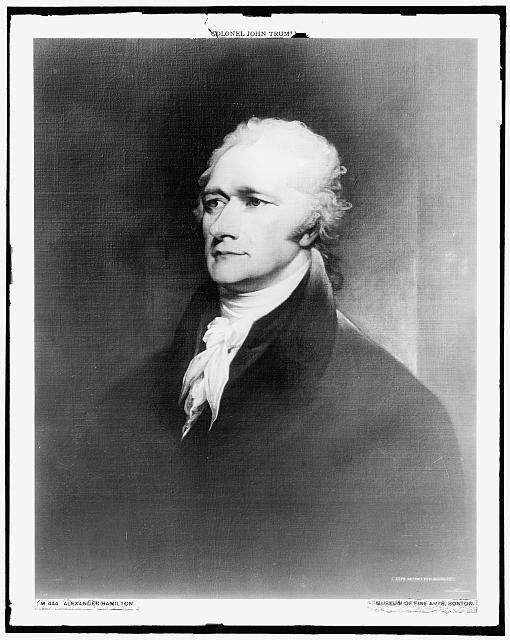Barry Landau yesterday pleaded guilty to conspiracy and theft charges related to stealing historical documents from several institutions along the east coast. In December 2011, Landau’s attorney filed a motion to suppress evidence of the crime found by federal agents. But yesterday Landau entered a plea agreement with the Maryland United States Attorney’s Office. Sentencing will be held on May 7, 2012 [UPDATE: Rescheduled to June 27, 2012].
Landau admitted in his plea in federal district court to taking historical documents from museums in Maryland, Pennsylvania, New York, and Connecticut and selling some for financial gain. His accomplice, Jason Savedoff pleaded guilty to the same charges in October 2011.
 |
Documents by Alexander Hamilton
were stolen by Landau and Savedoff.
Library of Congress image. |
Institutions targeted by the pair included the Maryland Historical Society, the Historical Society of Pennsylvania, the Connecticut Historical Society, the University of Vermont, the New York Historical Society, and the Franklin D. Roosevelt Presidential Library. They pretended to be researchers and walked away with important papers by hiding them in clothing. According to the US Attorney’s Office, “Landau and Savedoff often took the card catalogue entries and other ‘finding aids,’ making it difficult for the museum to discover that an item was missing. Documents that had been copied on microfilm were often avoided because of the increased possibility the theft would be discovered by the library or repository.”
Items taken included papers by prominent figures in American history, including John Jay, Alexander Hamilton, George Washington, Benjamin Franklin, and Abraham Lincoln. The documents’ historical value is priceless. On the open market, some of the papers fetched high sums. For example, four reading copies of speeches by Franklin Roosevelt sold for $35,000.
©2010-2022 Cultural Heritage Lawyer Rick St. Hilaire. Content discussing cultural heritage law, art law, looted antiquities, stolen artifacts, and museum risk management that is general information only, not legal advice.


